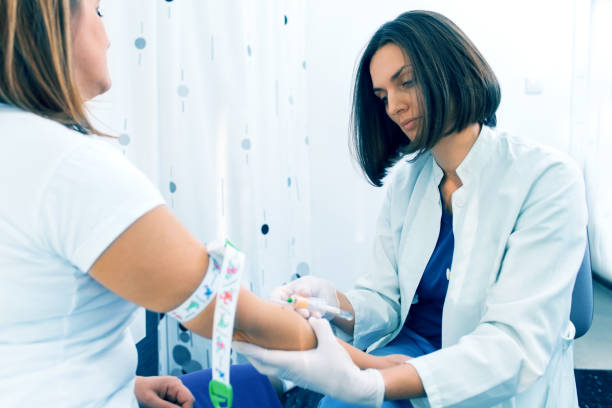Donate Sperm: A Comprehensive Guide
Introduction
Donating sperm is a process that has gained significant attention in recent years, providing a crucial option for individuals and couples struggling with infertility. This guide aims to offer a thorough understanding of what sperm donation entails, the benefits it offers, and the process involved.
Understanding Sperm Donation
Sperm donation involves a man providing his sperm to be used in fertility treatments for individuals or couples who cannot conceive naturally. The donated sperm is often used in artificial insemination or other assisted reproductive technologies (ART) to help achieve pregnancy. This process has helped countless families grow and has become an essential component of reproductive medicine.
The Importance of Sperm Donation
The demand for sperm donors is ever-increasing. Various factors contribute to this, including male infertility, single women or same-sex couples wishing to start a family, and genetic considerations where the male partner's sperm may carry hereditary diseases. Sperm donation provides these individuals with the opportunity to experience the joys of parenthood.
Who Can Donate Sperm?
Typically, sperm banks have strict criteria for accepting donors to ensure the quality and safety of the sperm. Donors are generally required to be between 18 and 39 years old, though some banks may have slightly different age ranges. They must also be in good health, with no history of genetic disorders or sexually transmitted infections.
The Screening Process
Before becoming a sperm donor, candidates must undergo a rigorous screening process. This process includes:
- Medical History Review: A thorough examination of the donor's medical history, including any hereditary conditions, is conducted.
- Physical Examination: Potential donors undergo a physical examination to ensure they are in good health.
- Semen Analysis: The quality of the donor’s sperm is assessed through semen analysis to ensure it meets the required standards.
- Genetic Testing: Donors are tested for genetic conditions to minimize the risk of passing hereditary diseases to the offspring.
- Psychological Evaluation: A psychological evaluation is often required to ensure the donor understands the implications of donating sperm and does not have any underlying mental health issues that could affect the donation process.
The Donation Process
Once a donor passes the screening process, the actual donation process can begin. Here’s what the typical procedure looks like:
- Abstinence Period: Donors are usually asked to abstain from ejaculation for a few days before the donation to ensure a high sperm count.
- Collection: Sperm is collected through masturbation in a private room at the sperm bank or fertility clinic. The sample is then immediately processed.
- Processing and Freezing: The sperm sample is analyzed, and if it meets quality standards, it is frozen and stored for future use. This process is known as cryopreservation.
- Quarantine Period: The sperm is typically quarantined for several months, during which the donor is retested for infectious diseases. This ensures the safety and health of the recipients.
Legal and Ethical Considerations
Sperm donation is subject to various legal and ethical considerations. Donors usually sign agreements that outline their rights and responsibilities, ensuring they understand that they will not have parental rights or obligations towards any child conceived using their sperm. Laws regarding anonymity and the right of donor-conceived children to know their biological origins vary by country and state, so it is essential for donors to be aware of the regulations in their jurisdiction.
Benefits of Donating Sperm
Donating sperm can be a highly rewarding experience. For many donors, the primary motivation is the opportunity to help others achieve their dream of having a family. Knowing that their donation has made a significant impact on someone's life can provide a profound sense of fulfillment.
Compensation
While altruism is a significant factor, donors are often compensated for their time and effort. Compensation varies widely depending on the sperm bank and location but generally covers travel expenses, time off work, and other inconveniences. It is not intended to be a significant source of income but rather a token of appreciation for the donor's contribution.
Potential Risks and Considerations
As with any medical procedure, there are potential risks and considerations involved in sperm donation. Donors should be aware of the following:
- Medical Risks: Although rare, there are potential risks associated with the donation process, such as infection or injury during the collection process.
- Emotional Considerations: Donors should consider the emotional implications of knowing they may have biological children they will never meet. This can be particularly important if donor anonymity laws change or if donor-conceived children seek to contact their biological parents in the future.
- Legal Obligations: Understanding the legal framework around sperm donation is crucial to avoid any future legal complications. Donors should be clear about their rights and any potential obligations.
The Impact on Recipients
For recipients, sperm donation can be a life-changing option. It offers hope and a viable path to parenthood for those who may have lost it due to medical, genetic, or personal reasons. The emotional and psychological impact of being able to start a family thanks to a sperm donor cannot be understated.
The Role of Sperm Banks
Sperm banks play a crucial role in the sperm donation process. They not only facilitate the collection and storage of sperm but also ensure that donors and recipients meet all necessary medical and legal criteria. They provide counseling and support to both donors and recipients, helping them navigate the complexities of the process.
The Future of Sperm Donation
Advancements in reproductive technology continue to evolve, making sperm donation more efficient and accessible. Innovations in genetic screening, cryopreservation, and ART techniques promise to enhance the success rates of fertility treatments. Additionally, the increasing acceptance and normalization of sperm donation in society will likely lead to more individuals considering this option, both as donors and recipients.
Personal Stories and Testimonials
Hearing from those who have donated sperm and recipients who have benefitted from it can provide valuable insights and encouragement to others considering this path. Personal stories highlight the profound impact that sperm donation can have on families and the deep sense of fulfillment it can bring to donors.
Conclusion
Sperm donation is a vital service that offers hope to countless individuals and couples facing infertility challenges. It is a process that requires careful consideration, both from a medical and emotional standpoint. By understanding the intricacies of sperm donation, potential donors can make informed decisions that not only benefit them but also bring joy and fulfillment to those looking to start a family. As society continues to embrace and support sperm donation, its role in reproductive medicine will only become more significant, paving the way for future advancements and opportunities.




